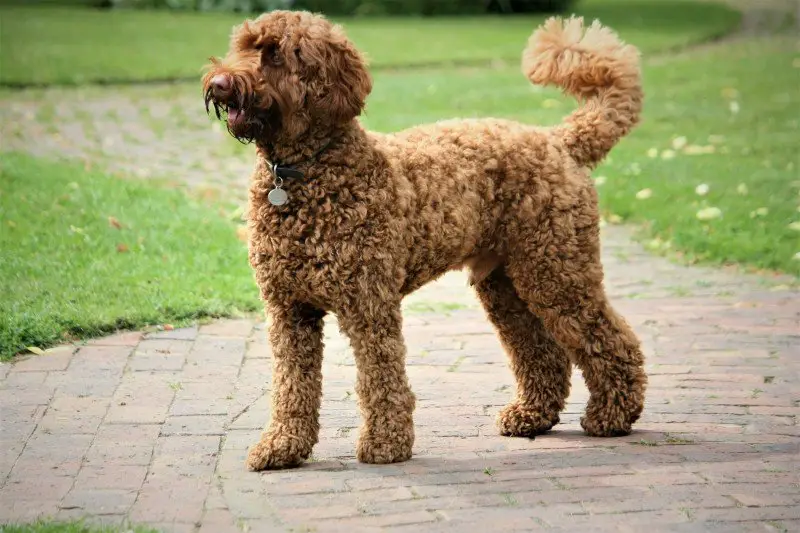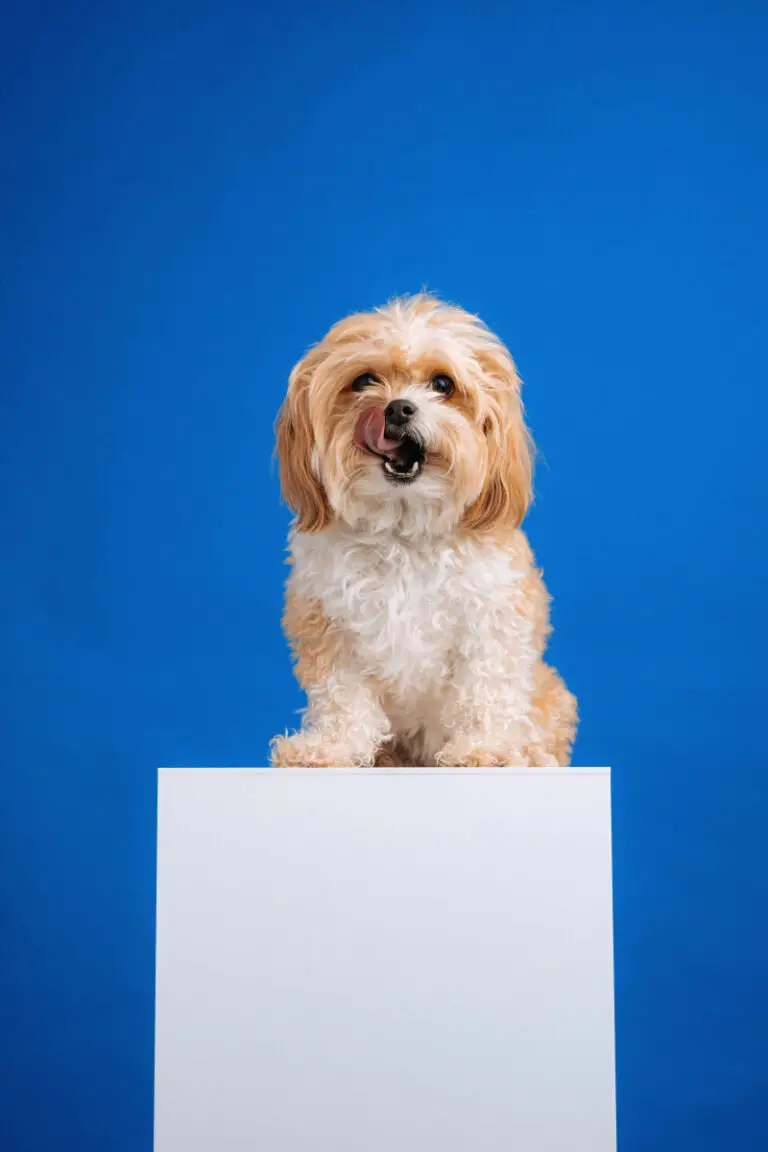
Photo by Bruce Williamson on Unsplash
Choosing a pet, particularly a dog, is not a decision to be taken lightly. As dog enthusiasts, many of us are caught up in the ongoing debate about which breed is considered the ‘best’ in today’s canine world. The answer is far from straightforward and largely influenced by individual circumstances, expectations, and lifestyle preferences.
The idea of the ‘best’ breed alters dramatically depending on the specific requirements of prospective dog owners. For some, the most desirable attributes might be intelligence and trainability, while others might prioritize loyalty or playfulness. Let’s not forget those who base their decision on a breed’s propensity for health or longevity. As such, when we refer to the best dog breed right now, we’re dipping our toes into a significantly subjective and complex terrain.
Of primary importance in this choice are factors such as the breed’s general temperament, energy levels, size, and grooming needs, which must be harmoniously aligned with an owner’s lifestyle and commitment level. We cannot overlook the significance of a dog’s inherent traits, be it a top-tier canine breed renown for its guard dog abilities or a small, cuddly companion breed, perfect for apartment living.
The challenge lies in cutting through the multitude of opinions and focusing on those breeds that are receiving the lion’s share of recognition in various quarters – from veterinarians to trainers, and of course, owners themselves. It’s essential to take into account the diverse expectations and lifestyle prerequisites of dog owners while considering the breed’s inherent traits.
Hence, we delve into the question on many potential pet parents’ minds – What is the best dog breed at the moment? To answer this, we must look at the market-leading breeds and the factors influencing their popularity.
Whether you’re a first-time dog owner or a seasoned dog lover looking to add another member to your fur family, obtaining a well-rounded perspective on the top choices of our time will help streamline your decision. So, let’s embark on this journey of exploring the highly recommended dogs of our day and age. It’s a topic as varied and fascinating as the breeds themselves.
Table of Contents
Exploring Popular Breeds
Determining the top dog breeds of any given time requires meticulously combing through a myriad of factors. Nowadays, elite breeds today are defined as much by their psychological and emotional connections with humans as by their physical characteristics.
Identifying top popular breeds: Labradors, French Bulldogs, German Shepherds
Among the vast expanse of canine species available to dog lovers, three breeds consistently draw our attention – Labradors, French Bulldogs, and German Shepherds. These breeds are perennial favorites, each wielding a unique charm that lures owners towards them. So, let’s take a closer look at these popular dogs now, and find out why they’re leading the pack.
Labradors are favored for their friendly demeanor, intelligence, and versatility, making them one of the most favored dogs worldwide. French Bulldogs, known for their distinctive bat ears and invincible sense of humor, are preferred puppy kinds for their adaptability to urban living. German Shepherds, meanwhile, are revered for their protective instincts and intelligent temperament, qualifying them as one of the top-tier canine breeds.
Analyzing reasons for their popularity: Temperament, Adaptability, Maintenance levels
The best breed currently is not solely determined by their popularity; it also takes into consideration what makes them stand out and their appeal to different lifestyle needs. Key factors that play a crucial role in determining a breed’s popularity include their temperament, adaptability, and maintenance levels.
Labradors, with their amiable disposition and effortless adaptability, are ideal for both single-person families as well as larger households. Their inherent need to please combined with their intelligence makes them easy to train and manage, adding to their widespread appeal.
French Bulldogs, with their small size and minimal exercise needs, are suitable for city dwellers with limited living space. Despite their somewhat somber appearance, Frenchies, as they are endearingly referred, are known for their jovial temperament and love for companionship.
German Shepherds, on the other hand, are highly valued for their astute intelligence and loyalty. Despite their maintenance being slightly high due to their doubled-layered coat and high energy levels, they’re still a favored pick thanks to their natural protective instincts that make for excellent family, service, or police dogs.
Highlighting star qualities in each breed: Labradors: Family-friendly nature, French Bulldogs: Compact size and minimal exercise needs
Delving further into these market-leading breeds, we start to see individual star qualities that set them apart. Labradors have long held the title of one of the best in class breeds due to their family-friendly nature and flexibility. Their easy-going nature and capacity for forming close bonds with their human family members make Labradors a fantastic choice for families with children.
French Bulldogs take the crown when it comes to premier puppy breeds suitable for city living. Their compact size and low maintenance nature coupled with a naturally affectionate and playful temperament make them the quintessential metropolitan companion, capable of living in small apartments.
In the canine world, these breeds stand tall, thanks to their star qualities that seamlessly merge with the varied expectations of dog owners. It is, therefore, no surprise that Labradors, French Bulldogs, and German Shepherds are repeatedly listed among the highly recommended dogs of our time.
Determining the Best Breed for Different Lifestyles
Our lifestyle plays a significant role in determining the best breed currently, as it directly impacts the dog’s life quality and happiness. Factors such as living conditions and routine activities significantly influence the breed selection. Let’s delve into specific lifestyle categories and identify suitable top-tier canine breeds that thrive in each.
Urban Living: Breeds that adapt well to apartment living, require minimal exercise, and show tolerance towards noise
In the hustle and bustle of city life, where living spaces are often compact, specific dog breeds shine as excellent companions. The loud noises, crowded streets, and limited spaces are typical conditions for urban dwellings, which call for adaptable and low-maintenance canine types.
Urban dwellers favor breeds that can endure the city’s chaotic soundscape and fast-paced rhythm without getting overwhelmed. Bulldogs, Pugs, Shih Tzus, and the increasingly popular French Bulldogs, fall under this category of preferred puppy kinds. These breeds call for minimal exercise and respect the limited space available in apartments, making them ideal for city life.
It’s essential to remember, however, that living in a city does not eliminate a dog’s need for regular exercise and social interaction. It simply means that certain breeds manage better in these environments and guide urban residents in their choices of popular dogs now.
Suburban Living: Larger breeds, active breeds for active families, and child-friendly breeds
The suburban lifestyle, known for its family-friendly neighborhoods and spacious backyards, offers a different set of opportunities and challenges for dog owners. Larger breeds, such as Labradors, Golden Retrievers, and Bernese Mountain dogs, thrive in these spaces due to their active lifestyle and need for more room.
In the land of picket fences and school buses, active breeds meet their match with equally active families. Breeds like Australian Shepherds, Border Collies, and Labradors are natural fits for the suburban lifestyle due to their high energy levels and love for playtime. A spacious backyard becomes their playground, helping them stay fit and happy.
Given the relatively high number of families with children in suburban neighborhoods, child-friendly breeds are highly favored dogs. Labradors, Beagles, and Cavalier King Charles Spaniels are award-winning dog types known for their friendly demeanor and gentle nature with children, thereby solidifying their status as the most popular dog breeds in suburban neighborhoods.
Rural Living: Working breeds and breeds benefiting from large spaces
Rural landscapes offer vast expanses of open spaces that are the perfect backdrop for large dog breeds and breeds that thrive on work and tasks. In these environments, breeds like German Shepherds, Border Collies, and Australian Shepherds reign supreme, showcasing their skills as superior canine types. These breeds are known for their herding abilities, making them essential for many farming activities prevalent in rural areas.
Other large breeds like the Bernese Mountain Dog or the Newfoundland are also favored in these conditions, due to their substantial size and preference for wide-open spaces. The human-canine bond flourishes in these open lands, making rural living an envy for many dog lovers.
In each of these locales, there exist leading canine species that adapt well to the living conditions and flourish under the love and care of their human families. These breeds, shining in their environments, are what we can decisively refer to as the hot dog breeds now.
Security, Health, and Longevity Concerns
When considering the best dog breed right now, there are integral factors such as security, health, and longevity that should be taken into account, given the central role our canine companions play in our lifestyles.
Role of Breed in Home Security: Agility and alertness, Strength and deterrent factor, and Balance between protective and family-friendly characteristics
A crucial factor for many when considering the top-tier canine breeds is their potential role in home security. Breeds known for their agility and alertness often possess protective instincts, making them the preferred puppy kinds for many homeowners.
Top of the list in terms of home security are breeds like the German Shepherd and Rottweilers. These breeds are known not just for their strength but also their innate deterrent factor. These are powerful dogs, strong enough to intimidate potential intruders, but at the same time, forming deep, loving bonds with human family members.
Yet, it’s essential to strike a balance between protective qualities and family-friendly characteristics. Breeds like the Boxer and Labrador Retriever are perfect examples, offering the right blend of protection and companionship. They are alert and robust enough to provide security but also gentle and playful to integrate into family life seamlessly.
Health Issues: Purebred vs mixed breed health concerns, Lifespan of different breeds, and Breed predispositions to certain health conditions
Health issues, predisposition to certain ailments, and the overall lifespan significantly influence the decision on the best breed currently. It’s necessary to understand the health background of the dog breed you’re considering to prepare for potential future health issues.
Purebred dogs, while boasting a lineage of elite breeds today, sometimes have health concerns resulting from genetic factors. These could range from breathing difficulties in Bulldogs to hip dysplasia in German Shepherds. Mixed breeds, on the other hand, often enjoy a larger gene pool and, consequently, a decreased risk for numerous breed-specific diseases.
However, knowledge about the health issues common in specific breeds can help owners provide better care and take preventive measures. Regular vet check-ups, a balanced diet, and regular exercise are vital to keeping your canine buddy healthy, regardless of the breed.
Maintenance and Care: Grooming needs varied by breed, Exercise requirement and energy levels, special needs in certain breeds
Maintenance and care constitute a significant part of owning a dog. Different breeds have varied needs, and these details often play a significant role in the selection of breeds, especially for first-time dog owners.
The grooming need of a breed is vital information. While breeds like the French Bulldog and Beagle require minimal grooming, breeds like the Afghan Hound and Bernese Mountain Dog have more demanding grooming needs. Balancing these needs with personal capacity is essential to ensure a happy and healthy life for your pet.
Exercise requirements and energy levels of different breeds also highly vary, and matching them with your lifestyle is crucial. For example, Border Collies and Australian Shepherds are high-energy breeds requiring ample space and frequent exercise. In contrast, Basset Hounds and Bulldogs are less active breeds.
Certain breeds may also have special needs due to their physical characteristics or genetic predispositions. For instance, Brachycephalic breeds like Bulldogs and Pugs may need cooling mats in the summer due to their difficulty with heat regulation.
Ultimately, deciding on the best breed implicates your lifestyle, preferences, and what you’re looking for in a canine companion. With the right match of breed to owner, our lives get enriched in ways words can barely encapsulate.
Choosing the Right Breed for You
The varying landscapes of opinions and experiences, when it comes to determining the best dog breed, convincingly shows that the answer hinges squarely on personal circumstances, expectations, and lifestyle choices. Intent on unraveling the tapestry of numerous factors that decide our preferred puppy kinds, we have embarked on an enlightening journey from breed characteristics to the effect of living conditions on breed behavior.
Our exploration has brought to light the importance of balancing lifestyle compatibility with breed traits. Be it an agile and alert breed suited for home security, a compact, low-maintenance breed ideal for city dwellers or a large, high-energy breed perfect for a rural lifestyle – ensuring the chosen breed aligns with your living circumstances and lifestyle choices is essential. However, beyond all these factors, the breed should ultimately resonate with your expectations of a furry companion.
We’ve also touched upon the health and longevity concerns that can influence our breed choices. Health predispositions, care and maintenance requirements, and inherent breed-specific characteristics play a crucial role in deciding the right breed. By understanding these underlying factors, you can choose a breed that not only fits your preference but also ensures a healthier and happier life for your pet.
We traversed the realms of popular breeds – Labradors with their family-friendly nature, French Bulldogs, perfect for apartment living, and German Shepherds, known for their protective instincts. Looking at different living situations and analyzing which breeds shine the brightest in each, we arrive at the understanding that what’s best varies greatly based on each specific circumstance.
This discussion illuminates that the ‘best breed’ is a spectrum rather than a fixed entity. It prompts us to rethink the notion of ‘the best breed’ and realize it’s deeply personal rather than universally definitive. The best dog breed for each individual sits at the intersection of the dog’s needs and the individual’s lifestyle and preferences.
Given the multitude of intrinsic and extrinsic factors that define the best breed for any individual, wouldn’t it be fascinating to learn about your perspective? What do you think is the best dog breed right now, and why?




